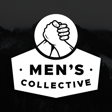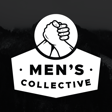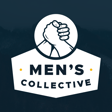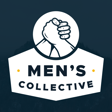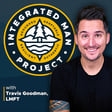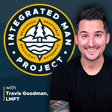
What Is Sexual Neglect: Fostering Healthy Childhood Development
Welcome to another episode of The Integrated Man Project. Today, we're joined by Clint Davis, a seasoned expert in the field of mental health and healing from trauma. Clint's extensive experience as a licensed professional counselor, author, and founder of Clint Davis Counseling and Integrative Wellness has equipped him with invaluable insights into overcoming adverse childhood experiences (ACEs) and sexual neglect. In this crucial discussion, Clint will unpack the often overlooked topic of childhood sexual neglect, its vast implications, and the essential steps for prevention and recovery. His profound knowledge and personal journey offer a unique perspective on the importance of proactive communication and education to foster healthy emotional and physical development in children.
Clint Davis, a licensed professional counselor and the founder of Clint Davis Counseling and Integrative Wellness, is a profound advocate for understanding and healing trauma. Author of "Building Better Bridges" and a recognized speaker, including a notable TED Talk on sexual neglect, Clint brings both his professional expertise and personal experiences, including overcoming PTSD from military deployment and personal trauma, to highlight the necessity of addressing childhood adversity and fostering open dialogues about mental and sexual health.
Three Key Points:
1. **Impact of Childhood Sexual Neglect:**
2. **Role of Technology and Parental Education:**
3. **Need for Open Conversations and Healing:**
This episode is not only a deep dive into the specifics of how we can protect and educate our children but also a guide on how parents themselves can recover and grow from their own past traumas to positively influence their children’s lives.
JOIN THE MAILING LIST & GET INVOLVED!
WATCH ON YOUTUBE:
Connect and Support Clint:
Book: Building Better Bridges
Connect and Support Travis:
YouTube: Travis Goodman
Instagram: @integratedmanproject
Check out the Website: TBD
